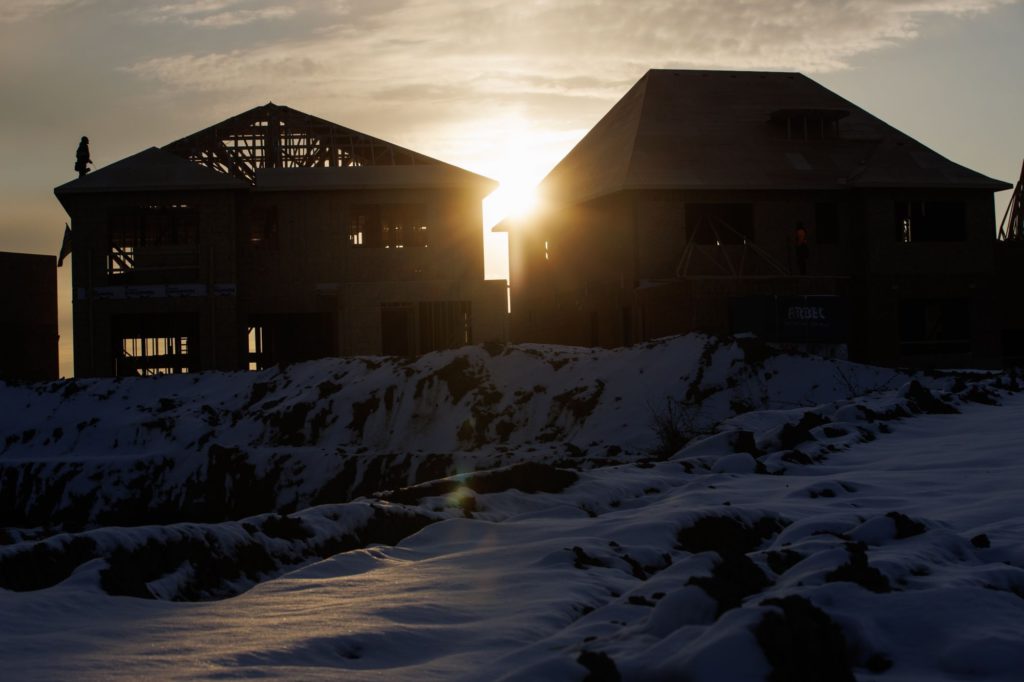(Bloomberg) — Canada’s economy geared down at the end of 2022, growing at about half the pace of the third quarter and setting the stage for a period of little to no growth.
(Bloomberg) — Canada’s economy geared down at the end of 2022, growing at about half the pace of the third quarter and setting the stage for a period of little to no growth.
Preliminary data suggest gross domestic product was flat in December as increases in retail, utilities and the public sector were offset by decreases in the wholesale, finance and oil and gas industries, Statistics Canada reported Tuesday in Ottawa. That followed a 0.1% gain in November, which matched economist expectations in a Bloomberg survey, and a 0.1% increase in October.
Overall, the monthly gains point to annualized growth in the fourth quarter of 1.6%, according to an initial estimate from the statistics agency. Though it will likely be revised, it’s down sharply from a 2.9% pace in the third quarter, 3.2% during April to June, and 2.8% in the first three months of last year.
The numbers show that higher interest rates, which have jumped 425 basis points since last March, are slowing economic activity and weighing on consumption. The lagged effects of the Bank of Canada’s aggressive tightening campaign are expected to drag growth to a halt this year, with economists seeing two quarters of shallow contraction in the first half of 2023.
That’s a key reason why Governor Tiff Macklem and his officials said this month they plan to hold the benchmark overnight lending rate at 4.5% if growth and inflation evolve broadly in line with their outlook. While the 1.6% growth in the final quarter is slightly stronger than policymakers forecast last week, signs of slowing demand are mounting.
“The economy hasn’t yet absorbed the impact of past rate hikes,” James Orlando, an economist at Toronto-Dominion Bank, said in a report to investors. “Even though today’s growth numbers are holding up well, the BoC can feel comfortable keeping its policy on cruise control a little while longer.”
In November, growth in services-producing industries was partially offset by a decline in the goods sectors, the statistics agency said. Interest-rate increases continued to dampen activity for real estate agents and brokers, residential building construction, and legal services which have been trending downward since spring.
Construction dropped 0.7%, with new construction of single detached homes and home improvement leading the decline. Accommodation and food services contracted 1.4% on lower activity in bars and restaurants. Retail trade decreased 0.6%, with the food and beverage subsector falling to its lowest level since April 2018.
The central bank expected fourth-quarter growth of 1.3% annualized, while economists in Bloomberg surveys predicted a gain of 0.9%. Official data for December and the fourth quarter will be released Feb. 28.
Based on initial estimates, Canada’s economy expanded 3.8% in 2022, broadly in line the Bank of Canada’s estimate for a 3.6% growth.
“The overriding message is that the economy is just managing to keep its head above water, which squarely fits with the BoC’s view,” Doug Porter, chief economist at Bank of Montreal, said in a report to investors.
–With assistance from Erik Hertzberg.
(Updates with economist reaction)
More stories like this are available on bloomberg.com
©2023 Bloomberg L.P.










